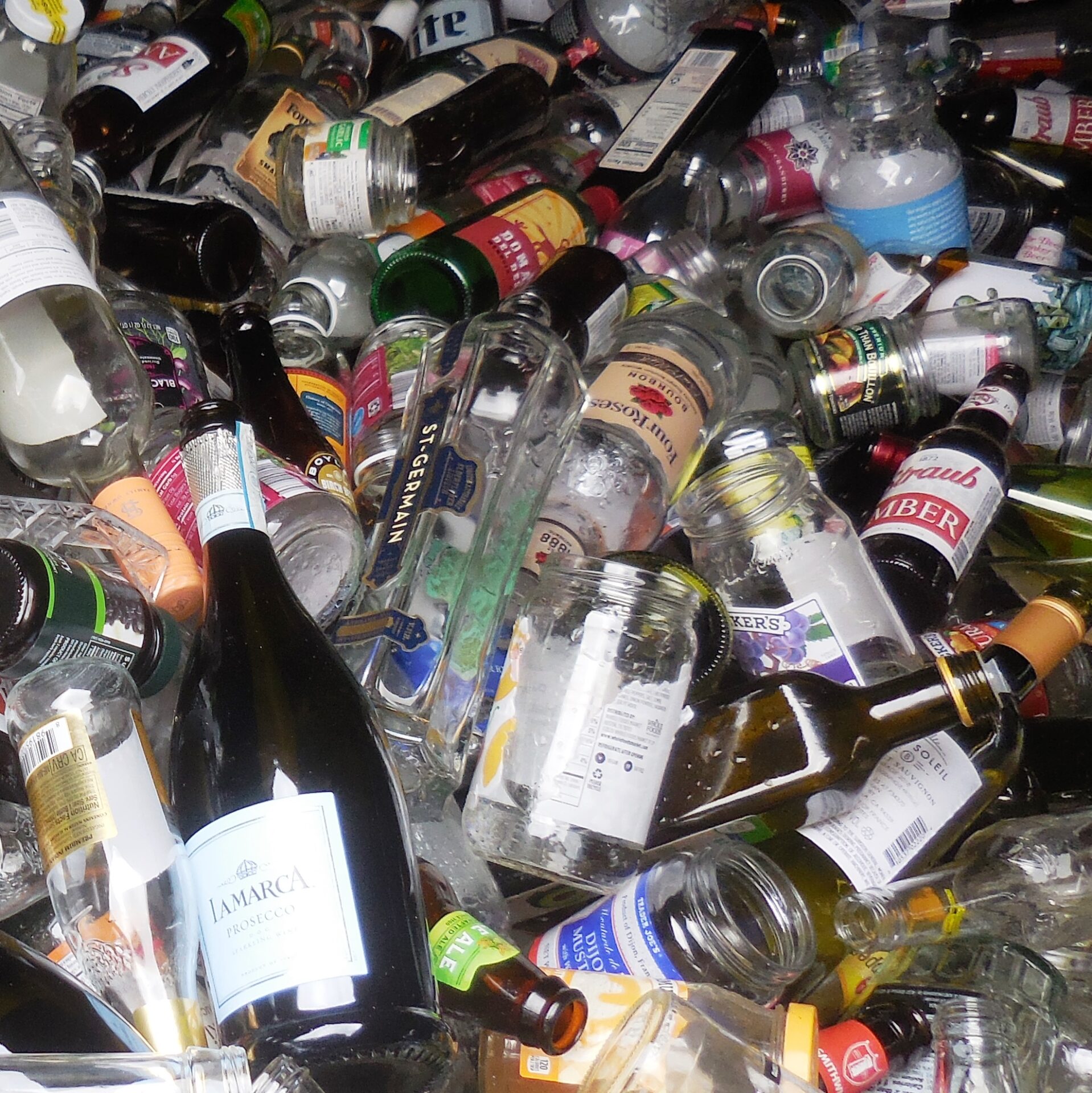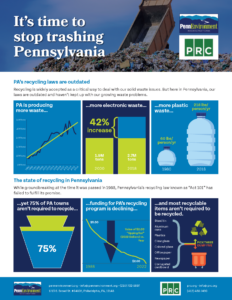
PRC offers actionable information and practical resources, from policy analyses to educational flyers, brochures, zines, videos, and more. Explore the waste reduction and sustainability topics below to find out how you can support a Pennsylvania where nothing is wasted.
To request printed copies of materials, please email us at info@prc.org



